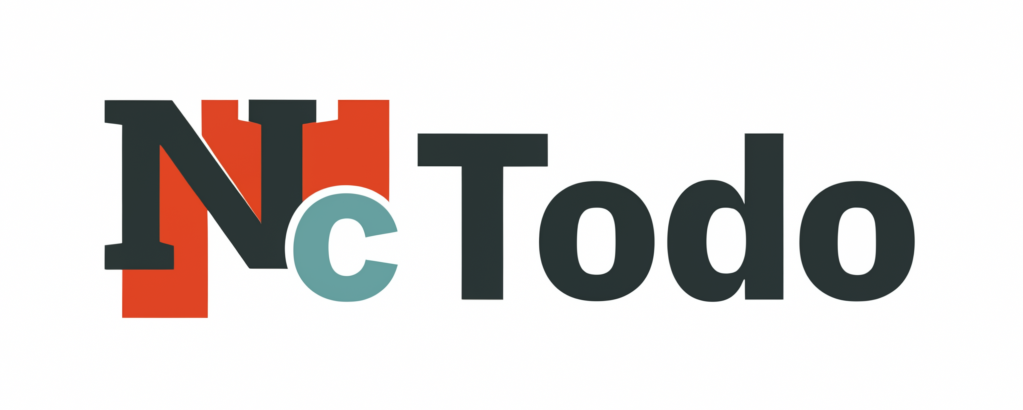
Are you a busy medical assistant juggling many responsibilities and tasks? Do you feel overwhelmed by the demands of your job, struggling to stay organized and efficient? If so, developing strong time management skills is crucial for success in this fast-paced field. In this article, we will explore the benefits and insights gained from mastering time management as a medical assistant. With effective strategies, you can increase productivity, reduce stress, and provide the best care for your patients.
Ready to take control of your schedule and become a more efficient medical assistant? Read on for essential tips to transform your workflow and elevate your career.
Overview
Time management is essential for medical assistants to prioritize, organize, and complete tasks promptly. By honing these skills, they can enhance productivity, minimize stress, and provide efficient patient care.
One way medical assistants can develop good time management skills is by creating a schedule or to-do list. Planning their day or week in advance allows them to be aware of all responsibilities and allocate time accordingly. This helps them stay focused and complete tasks systematically.
Another key aspect of time management for medical assistants is setting priorities. They should identify urgent and important tasks, allocating the necessary resources to address them first. Understanding the importance of each task helps avoid procrastination and ensures critical patient care activities are not delayed.
Additionally, medical assistants should avoid multitasking to improve time management skills. Working on multiple tasks simultaneously may seem efficient, but it often leads to decreased productivity and increased errors. Instead, focusing on one task at a time and completing it before moving on is recommended.
Developing good time management skills is crucial for medical assistants to succeed. By creating a schedule, setting priorities, and avoiding multitasking, medical assistants can enhance their productivity and provide efficient patient care.
Key Features or Points
To develop good time management skills as a medical assistant, consider key features: organize tasks, prioritize responsibilities, and maximize productivity.
One feature is understanding tasks and responsibilities. Medical assistants should know their role and expectations. This includes understanding assigned tasks, associated deadlines, and facility goals.
Another important feature is the ability to prioritize tasks. Medical assistants have a variety of responsibilities, from administrative tasks to patient care. Prioritizing tasks is crucial, and can be accomplished by creating a to-do list or using a planner.
Effective communication is also key to good time management. Medical assistants should communicate effectively with colleagues, superiors, and patients. This involves conveying information clearly, listening attentively, and asking clarifying questions. Effective communication ensures efficient and effective task completion.
Another feature is the ability to delegate tasks, which helps balance workloads and maximize productivity. It also allows medical assistants to focus on more critical or time-sensitive responsibilities.
In addition, utilizing technology can aid in time management. Medical assistants can use tools like electronic health records (EHR) systems, scheduling software, or productivity apps to streamline workflow and better manage time. These technologies automate tasks, reduce paperwork, and provide reminders or alerts for deadlines or appointments.
Developing good time management skills is crucial for medical assistants. To effectively carry out their responsibilities, understanding tasks, prioritizing responsibilities, communicating effectively, delegating tasks when necessary, and using technology and tools will improve productivity and efficiency.
Practical Tips or Strategies
One of the most important skills a medical assistant should have is good time management. Given the fast-paced nature of healthcare, it’s crucial for medical assistants to effectively manage their time to ensure task completion. Here are some strategies to develop good time management skills as a medical assistant:
1. Prioritize tasks: Create a to-do list and prioritize based on urgency and importance. Focus on critical tasks to avoid feeling overwhelmed.
2. Use a planner or digital tools: Invest in a planner or use digital tools like calendar apps to track appointments, meetings, and deadlines. This will help you stay organized and ensure you don’t miss any engagements.
3. Break tasks into smaller steps: If a task seems overwhelming, break it down into more manageable steps. This will make the task less daunting and help you approach it more effectively.
4. Delegate when necessary: As a medical assistant, you don’t have to do everything on your own. Learn to delegate tasks that others can handle, such as administrative duties or scheduling appointments. This will free up your time to focus on critical responsibilities.
5. Avoid multitasking: Multitasking may seem helpful but actually leads to decreased productivity and increased mistakes. Instead, focus on one task at a time and give it your full attention.
6. Learn to say no: Set boundaries and avoid taking on more than you can handle. If overwhelmed, say no to additional responsibilities. Prioritize your workload and communicate your limits to your supervisor.
Implementing these practical tips and strategies will help medical assistants develop good time management skills. This improves efficiency, productivity, patient care, and job satisfaction.
Personal Perspective or Case Study
Being a medical assistant, I understand how crucial good time management is. Developing these skills has been crucial in effectively handling tasks and responsibilities in a fast-paced medical setting. One standout case study is when a patient arrived with multiple complaints. Gathering their medical history, recording their vital signs, and preparing them for the doctor’s examination fell on me. Without proper time management, it would have been overwhelming.
Effective time management is crucial in the medical field. By prioritizing tasks, breaking them into smaller chunks, and completing them promptly, I can provide necessary information to doctors and ensure timely patient care. Another example highlighting the importance of time management is efficiently managing multiple physicians’ appointment schedules, coordinating patient needs, and ensuring a smooth flow of patients throughout the day.
Developing good time management skills is crucial for medical assistants. It enables them to handle multiple tasks efficiently, provide timely care to patients, and maintain a well-organized and productive workplace. Time management plays a significant role in a medical assistant’s success, and with practice, these skills can be honed and improved.
Interviews
Interviews are crucial in the hiring process for medical assistants. It is important for them to develop time management skills in preparation. This involves effectively managing their time to gather necessary information and prepare. Researching the company beforehand is an important aspect of time management in interviews. This includes learning about the company’s mission, values, recent developments, and achievements. Doing this research beforehand allows medical assistants to come prepared with specific knowledge about the company, making a good impression and showing interest in the position.
Another important time management skill in interviews is efficient question answering. Medical assistants must carefully consider their responses and offer thoughtful, well-organized answers by thinking before they speak. They should also reflect on pertinent experiences or examples and ensure their responses directly address the questions.
Moreover, medical assistants must handle time effectively during interviews by attending to the allotted time for each question or discussion point. Sans rambling, they should promptly and concisely provide sufficient information to answer fully to the point.
Good time management skills are essential for medical assistants during the interview process. By effectively managing their time, they can research the company, provide thoughtful answers, and ensure that they utilize their time during the interview effectively. These skills can contribute to a successful interview and increase the chances of being hired.
Related Resources
Now that you’ve learned about the importance of time management for medical assistants, explore additional resources that can help improve productivity in the workplace.
Recommended resources for improving time management skills:
– Books: “The 7 Habits of Highly Effective People” by Stephen Covey and “Getting Things Done: The Art of Stress-Free Productivity” by David Allen offer practical advice on effective time management.
– Online courses: Consider enrolling in time management courses on platforms like Coursera or LinkedIn Learning for specific techniques and tools to enhance your skills.
Listen to podcasts like “The Productivity Show” by Asian Efficiency or “The Tim Ferriss Show” for expert interviews on time and productivity optimization. Keep in mind that mastering time management is an ongoing process that requires consistent effort and practice. The mentioned resources can be valuable tools on your journey towards becoming a more efficient medical assistant. Reflect on the key points discussed in this article and consider ways to implement them in your own life and work situation. There are several strategies to enhance your time management skills, such as prioritizing tasks, setting clear goals, and utilizing organizational tools and techniques.
Adopting these practices will enhance productivity and contribute to a more efficient healthcare environment. As a medical assistant, effective time management is crucial for supporting patient care.
Explore and select resources that resonate with you. Engage, share thoughts, and continue learning to grow in your time management journey. Developing these skills will have a greater impact on your personal and professional success.
Take control of your time and make a difference. Begin now and unlock your full potential as a medical assistant.
